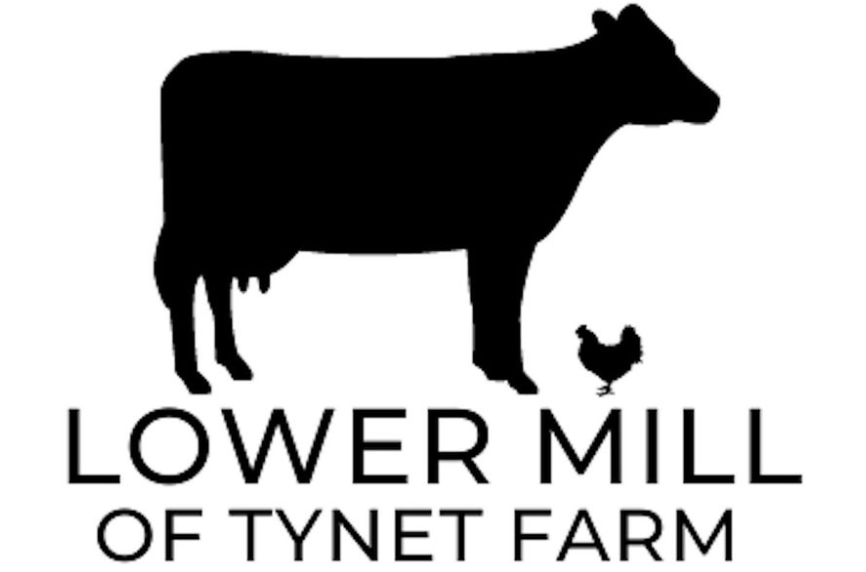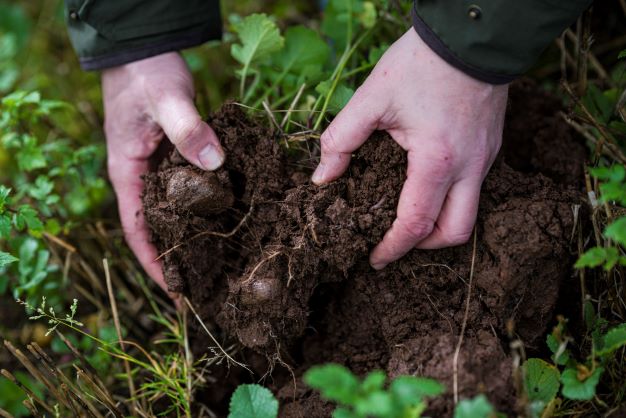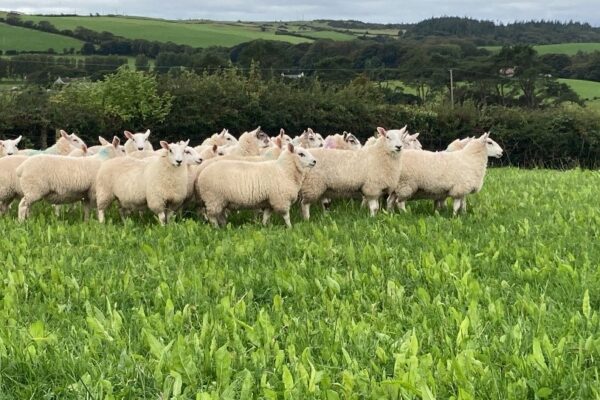Organics in Scotland – Lower Mill of Tynet Case Study
28 July 2025Organics in Scotland
Lower Mill of Tynet is an innovative farm, blending traditional farming practices with direct-to-customer strategies, marketing produce from the farm gate.
Gordon grew up on a farm in Ayrshire, but is a first-generation farmer in his own right. In 2005, he started with a 3000-bird organic layer unit on a rented field, doubling to 6000 birds in 2008. In 2012, Gordon and his wife June took on a Crown Estate Tenancy at Lower Mill of Tynet Farm expanding their egg production. In 2019, neighbouring land at Upper Auchenreath Farm was added, with the business now operating over 150ha. Most recently, in 2020 the business expanded into a micro-dairy. The business now sells farm produced eggs, milk, ice cream and meat through vending machines in the on-farm shop which operates 24- hours a day, as well as supporting other local businesses marketing product through the shop.
Main enterprises on farm include poultry and dairy, however there is also a small flock of sheep and range of crops including Grass, Wheat, Barley, Rye, Oilseed Rape, Beans and Peas, either combined or mown for whole crop silage for use on farm or sale.

Hens
Around 80-90% of the farm business is still related to the hens, with 6000 organic birds and 9000 free range birds kept on farm. All enterprises at Lower Mill of Tynet are organic other than the free-range birds, this is due to the demand for free range eggs locally.
Lohmann brown and Shaver birds are used in the organic egg enterprise for their high production and low mortality breed traits, as well as smaller bird size reducing feed requirements. Eggs are marketed by the business where possible, with any over production sold on to a local Aberdeenshire egg producer. Sales are made through weekly egg runs, 3 to Inverness and 1 to Aberdeen, as well as supplying local businesses, selling through the farm-shop and the use of eggs in the ice cream enterprise.
Dairy
Traditional dairying requires calves to be removed from their mothers after birth and hand reared. This is not a stressful process due to low maternal traits of dairy bred cattle and the lack of bond between animals. However, unusually, Lower Mill of Tynet supports 30 dairy cows, who not only provide milk for human consumption, but also rear a calf (up to 3 months old). This is to reduce the labour and costs of milk power associated with hand rearing calves. Scandanavian Red Procrosses are kept on farm due to their maternal traits allowing them to mother calves and accept being separated overnight. Cows are then milked through a robot in the morning before being reunited with calves. On average, the cows are producing 14-15 litres of milk per day which is pasteurised before being sold through the farm shop as milk, milkshakes or ice cream.
Cows and bulls used at Lower Mill of Tynet undergo genetic testing to ensure they have A2A2 genes. A1 and A2 are forms of Beta-Casein, which makes up 30% of milk protein. A2 animals milk only contains A2 Beta-Casein Protein and is perceived to be easier to digest, often for those who show symptoms of lactose intolerance with regular milk.
Crop Rotation
The farm has a varied crop rotation, looking at around 5 years grass to 5 years crop. Where fields are suitable, the preferred rotation on farm is:
- Winter Oilseed Rape - grass will be cultivated and sown in August
- Winter Wheat – makes use of residual nitrogen in soils
- Beans or Peas - a fertility building stage
- Cereal crop – could be grown as a grain mixture for combining
- Arable silage – establishment of grass sward.
This is not a set in stone plan as field capability, farm requirement and markets vary. A field is also let annually for ware potatoes.
Protein production is important on farm, therefore legumes feature in rotation to increase protein of feed, as well as having the unique ability feed the growing crop through Nitrogen-Fixation, an important trait in organic systems. Feed in poultry enterprises is bought in, however all feed in cattle and sheep enterprises is produced on farm.
In the Future?
There is scope to increase cow numbers through the current robot milking system on farm, which would allow the business to produce milk commercially to a larger supplier, increasing output.
Move grading facilities to a closer vicinity of sheds to streamline processing operation and allow for expansion of the egg enterprise.
Open a manned farm shop over-and-above the current 24-hour vending machines. Allowing a more direct to customer approach of sales, as Gordon believes that being in the shop and talking to customers leads to more sales.
Kirsten Craig, SAC Consulting
Further Information
Sign up to the FAS newsletter
Receive updates on news, events and publications from Scotland’s Farm Advisory Service




